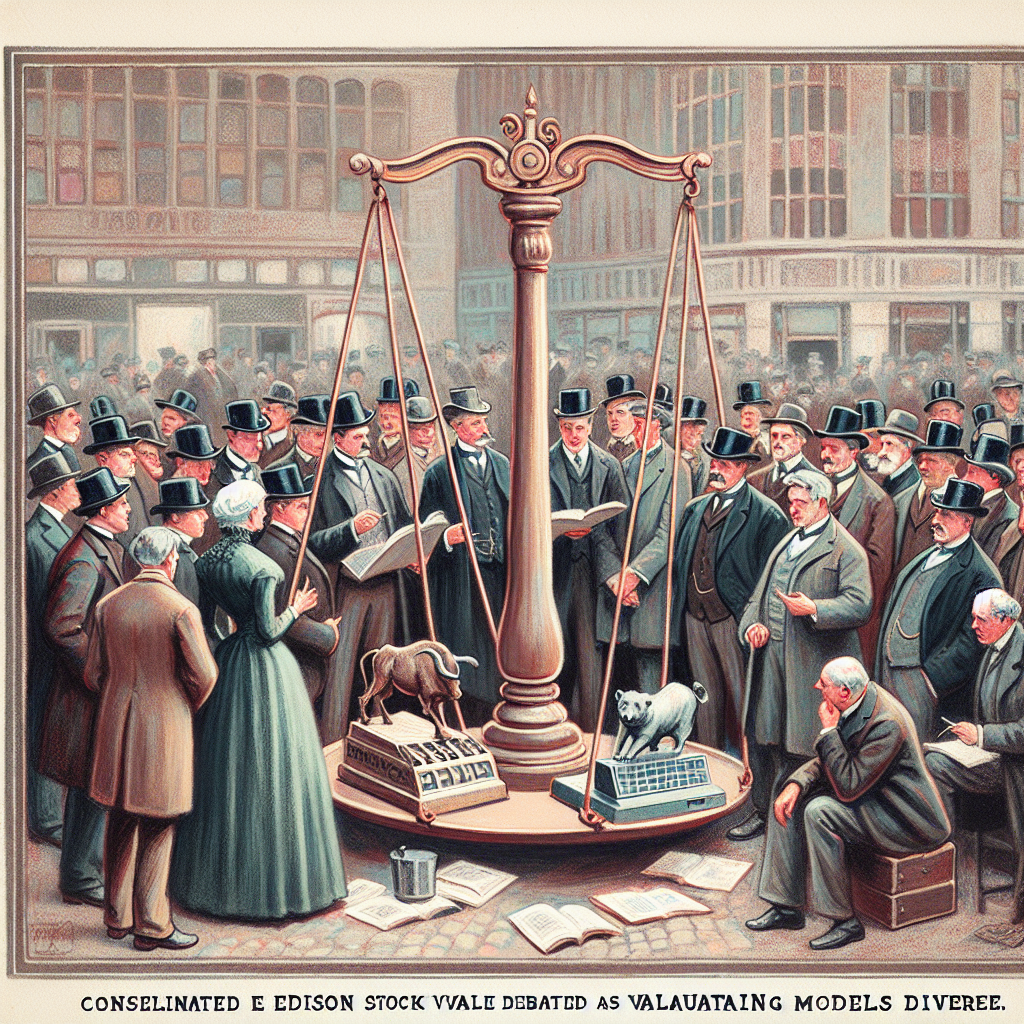Consolidated Edison, Inc. (NYSE: ED), a major U.S. utility headquartered in New York, is currently trading at $97.08 per share as of . The stock’s price showed little change from the previous close, with a slight uptick of $0.10 (0.00%), and traded within an intraday range of $96.3 to $97.33. The opening price stood at $97.07, and trading volume reached 1,603,960 shares throughout the day.
A series of recent analyses have sought to determine the intrinsic value of Consolidated Edison using a variety of models, as questions persist regarding whether the current share price offers investors value. The Dividend Discount Model (DDM), commonly used for utilities with established dividend histories, estimates the company’s fair value at $98.02 per share—very close to the current trading level. This approach assumes steady, perpetual growth of dividends and applies a cost of equity as the discount rate. Other DDM calculations provide a slightly higher fair value at $104 per share.
Alternative valuation methodologies paint a more varied picture. A Discounted Cash Flow (DCF) analysis by ValueInvesting.io estimates the intrinsic value at $131.45 per share, suggesting a potential upside of roughly 34.1%. Another DCF model from valuesense.io estimates the fair value at $109.3 per share, indicating the stock could be undervalued by about 11.5%.
Meanwhile, an Earnings Power Value (EPV) assessment values the company at $296.56 per share—a figure representing a 190.4% increase over the current market price and arguably an outlier among the models. In contrast, the Peter Lynch Fair Value calculation comes in much lower, at $54.12 per share, implying the stock is potentially overvalued by around 46.4%.
Analyst consensus currently rates Consolidated Edison (ED) stock as a "Hold," with a price target of $105.6 according to valueray.com—a modest 4.6% potential upside relative to the last trading price.
While a number of models indicate the stock may be undervalued, the methodologies yield widely varying estimates. Each uses different assumptions about future growth rates, dividend sustainability, and discount rates. For example, the DDM can be particularly sensitive to small shifts in inputs such as dividend growth rates and risk estimates.
The company faces some financial headwinds, according to reviews of its recent performance. These include lower-than-average earnings growth over the past year, insufficient coverage of debt payments by earnings, and dividends not fully supported by current operating cash flows. Analysts also project that ED's earnings will grow at a slower pace than the broader market in coming years.
Investors are advised to treat these intrinsic value assessments as guides rather than definitive judgments of worth. As the original analysis on Yahoo Finance notes, these models rely on forward-looking estimates and historical data, and they should be considered alongside other qualitative and quantitative factors. The varying results underscore the importance of conducting thorough personal research before making investment decisions in Consolidated Edison or similar utility equities.




